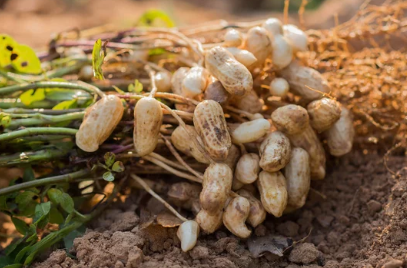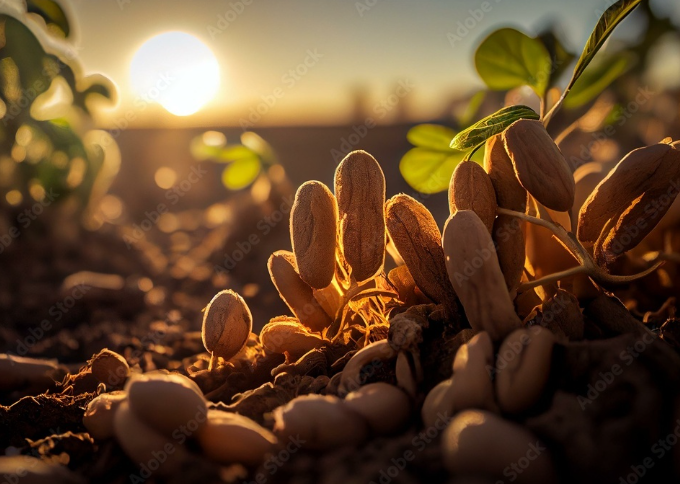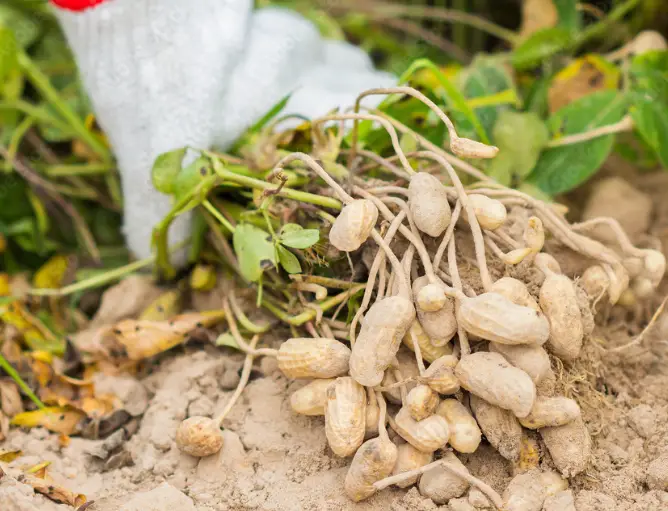Are you a gardening enthusiast looking to expand your crop selection and want to know Where to Buy Peanuts for Planting?
Growing peanuts at home is a rewarding and nutritious endeavor that allows you to enjoy the satisfaction of harvesting your own food.
However, to ensure successful cultivation, it’s crucial to start with high-quality peanut seeds.
In this blog post, we will explore various sources where you can buy peanuts for planting, helping you embark on your peanut-growing adventure with confidence.
Understanding Peanut Varieties:

Before purchasing peanut seeds, it’s essential to familiarize yourself with the different peanut varieties available.
The three main types of peanuts are Virginia, Spanish, and Valencia.
Virginia peanuts are large and typically used for roasting or making peanut butter.
Spanish peanuts are smaller and have a higher oil content, making them ideal for making peanut oil or as snack peanuts.
Valencia peanuts are commonly used for boiling and have a sweet flavor.
Consider your climate, preferences, and intended use to determine the variety that suits you best.
Where to Buy Peanuts to Planting?

Where to Buy Peanuts for Planting
Local Garden Centers and Nurseries:
One of the most accessible options for buying peanut seeds is your local garden center or nursery. These establishments often carry a selection of seeds suitable for your region’s climate.
The advantage of purchasing from a garden center is the expertise available from knowledgeable staff.
They can provide valuable guidance on peanut cultivation, including optimal planting times, soil conditions, and maintenance requirements.
Also, you can physically examine the seeds and select the best quality ones for your garden.
Online Seed Suppliers:
The convenience and vast selection offered by online seed suppliers make them a popular choice for purchasing peanut seeds.
Numerous reputable online seed companies specialize in providing high-quality seeds, including peanuts.
When buying online, it’s essential to choose a reliable supplier. Read customer reviews, check the company’s reputation, and ensure they have a strong track record of delivering fresh and viable seeds.
Look for suppliers that prioritize sustainable practices and offer a wide range of peanut varieties to cater to your specific needs.
Agricultural Co-ops and Farmers’ Markets:
For a more personalized and community-oriented experience, consider sourcing peanut seeds from agricultural co-ops or farmers’ markets.
These platforms connect you directly with local farmers who grow and sell their own seeds.
Purchasing seeds from farmers not only supports the local economy but also provides you with valuable insights and knowledge from experienced growers.
Farmers can share tips on successful peanut cultivation and recommend suitable varieties based on your location.
Organic and Non-GMO Options:
If you prefer organic and non-GMO seeds, it’s important to select peanut seeds that align with your values.
Organic cultivation ensures the avoidance of synthetic fertilizers and pesticides, promoting environmental sustainability and the production of healthier crops.
Look for reputable sources that specialize in organic and non-GMO seeds, as they adhere to strict standards.
These sources can include organic seed companies, certified organic farms, or specialized seed banks that prioritize preserving heirloom peanut varieties.
Community Seed Exchanges and Libraries:
For an exciting and economical approach, explore community seed exchanges and libraries in your area.
These platforms allow gardeners to share and exchange seeds, including peanuts.
Participating in a seed exchange not only grants you access to unique peanut varieties but also fosters a sense of community and promotes biodiversity.
Connect with local gardening groups or search online platforms to find seed exchange events or libraries near you.
Saving and Collecting Seeds:
Once you’ve successfully grown peanuts, you can save and collect the seeds from your harvest for future plantings.
This process ensures the continuity of specific varieties and reduces the need to purchase seeds every season.
Properly collecting, cleaning, and storing peanut seeds is crucial to maintain their viability.
Follow guidelines for seed-saving to ensure your collected seeds remain healthy and viable, ready for the next planting season.
Conclusion
Selecting high-quality peanut seeds is the first step toward a successful peanut-growing journey.
Explore various sources, such as local garden centers, online suppliers, agricultural co-ops, farmers’ markets, community seed exchanges, and libraries.
Consider your preferences, climate, and desired peanut varieties when making your selection.
Whether you choose to purchase seeds or embark on seed-saving, growing peanuts at home is a gratifying experience that allows you to savor the rewards of your own labor while enjoying the nutritional benefits of this versatile crop.
Start planting and unleash your green thumb today!




